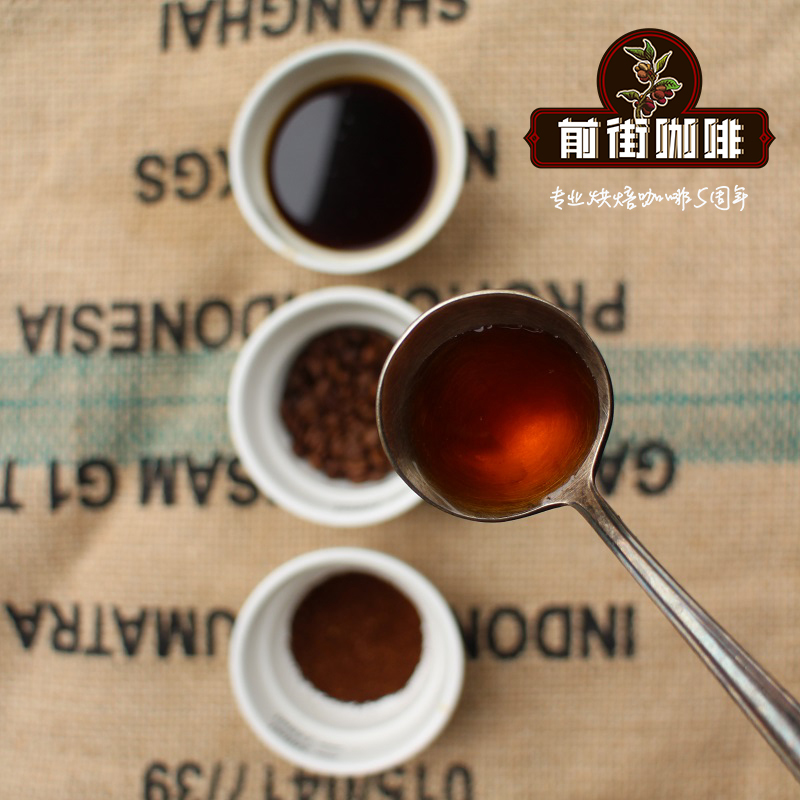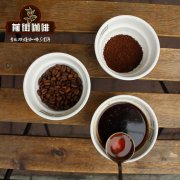The influence and function of Fine Powder in the course of hand-brewing Coffee

Professional coffee knowledge exchange more coffee bean information please follow the coffee workshop (Wechat official account cafe_style)
Excessive extraction caused by powder
-
When brewing coffee, people always avoid fine powder, mostly because we associate fine powder with excessive extract, and it is right to think so.
Matt Perger, the 2013 world hand champion, believes that the reason why the gold cup theory has been limited to 18% of the extraction rate is that we have forgotten the existence of "ultra-fine powder" in the ground coffee powder.
It is these ultra-fine powders that cause the over-extracted flavor and increase the average extraction rate of a cup of coffee. In order to avoid sensitive bitterness, the overall average extraction rate can only be limited to below 22%.
As long as the disposal of these ultra-fine powder, it should be able to make good beans have a higher extraction rate, and bring a stronger flavor performance.
So Matt Perger deliberately pulled the extraction rate of coffee to 23% during the competition, and the championship trophy proved that his idea was correct.
The reason why the fine powder scares the hand players:
One is its own fineness, which makes it easy to extract bad taste in a short time.
Second, when the fine powder is disturbed by the powder layer, it is easy to deposit to the bottom of the filter, resulting in poor drainage of the filter cup and "flooding", resulting in excessive extraction time and bitterness. The uncontrollable state of the powder layer in the filter cup during flooding is also another cause of over-extraction.
The positive influence of fine powder-the aroma and sweetness of the roof
-
"the explosion of aroma and sweetness brought by fine powder makes it easier to amaze drinkers with a sense of hierarchy."
In our general concept of cooking, fine flour actually plays an important role in enriching flavor.
The tasting experience of completely getting rid of fine powder is clean but insipid, which will be more profound if there is a practical experience.
When the fine powder is removed, the most direct effect is the mellowness of the coffee.
The so-called mellow, in fact, is a complex and full-bodied taste, and does not conflict with cleanliness.
Why is fine powder easier to extract? Because it releases flavor very quickly!
So fine powder can release a lot of flavor substances and even oils in a short time.
As more fine powder may cause more suspended matter in the coffee, the taste is usually sweeter when it is imported.
A typical example is coffee pressed by the Philharmonic.
Full-bodied, sweet, but undrinkable because of the mixed smell
Instead of being afraid of fine powder, learn to know it and deal with it.
-
Since the resurgence of the Japanese coffee industry after World War II
The concept of Japanese cooking has always been "how to avoid the negative impact of fine powder".
From the early days, in order to supply a large amount of coffee, it was necessary to avoid the deterioration of suspended substances in coffee.
And the cooking method that the quality of raw beans was generally not high enough to support high extraction rate at that time.
Therefore, most of them choose to sift out the fine powder or want to make a bean grinder with very little fine powder.
Later, due to the refinement of the taste and drink, the quality of raw beans was greatly improved, and the fine powder could not be screened at the beginning.
Instead, it pursues to avoid the siltation of fine powder in terms of techniques and equipment, and to pursue a higher extraction rate, such as KONO, which gives full play to the strengths of fine powder, and then avoids the shortcomings of fine powder.
Important Notice :
前街咖啡 FrontStreet Coffee has moved to new addredd:
FrontStreet Coffee Address: 315,Donghua East Road,GuangZhou
Tel:020 38364473
- Prev

What are the advantages and disadvantages of drinking coffee regularly? what are the taboos about drinking coffee?
Professional Coffee knowledge Exchange more information about coffee beans Please pay attention to the coffee workshop (Wechat official account cafe_style) what are the advantages and disadvantages of drinking coffee to your health? Is there any taboo about drinking coffee? The benefits of drinking coffee 1. Drinking 2-3 cups of coffee a day can reduce the overall mortality rate. An article says that people who drink 2-3 cups of coffee a day are caused by a variety of reasons.
- Next

The reason of hand-brewing coffee sieve powder in hand-brewing coffee course
Professional coffee knowledge exchange more coffee bean information please follow the coffee workshop (Wechat official account cafe_style) what is the fine powder? To put it simply, some people will wonder why in our last article we first mentioned the method of sieving fine powder by the world champion and then mentioned that not sifting fine powder will actually make coffee.
Related
- Beginners will see the "Coffee pull flower" guide!
- What is the difference between ice blog purified milk and ordinary milk coffee?
- Why is the Philippines the largest producer of crops in Liberia?
- For coffee extraction, should the fine powder be retained?
- How does extracted espresso fill pressed powder? How much strength does it take to press the powder?
- How to make jasmine cold extract coffee? Is the jasmine + latte good?
- Will this little toy really make the coffee taste better? How does Lily Drip affect coffee extraction?
- Will the action of slapping the filter cup also affect coffee extraction?
- What's the difference between powder-to-water ratio and powder-to-liquid ratio?
- What is the Ethiopian local species? What does it have to do with Heirloom native species?

